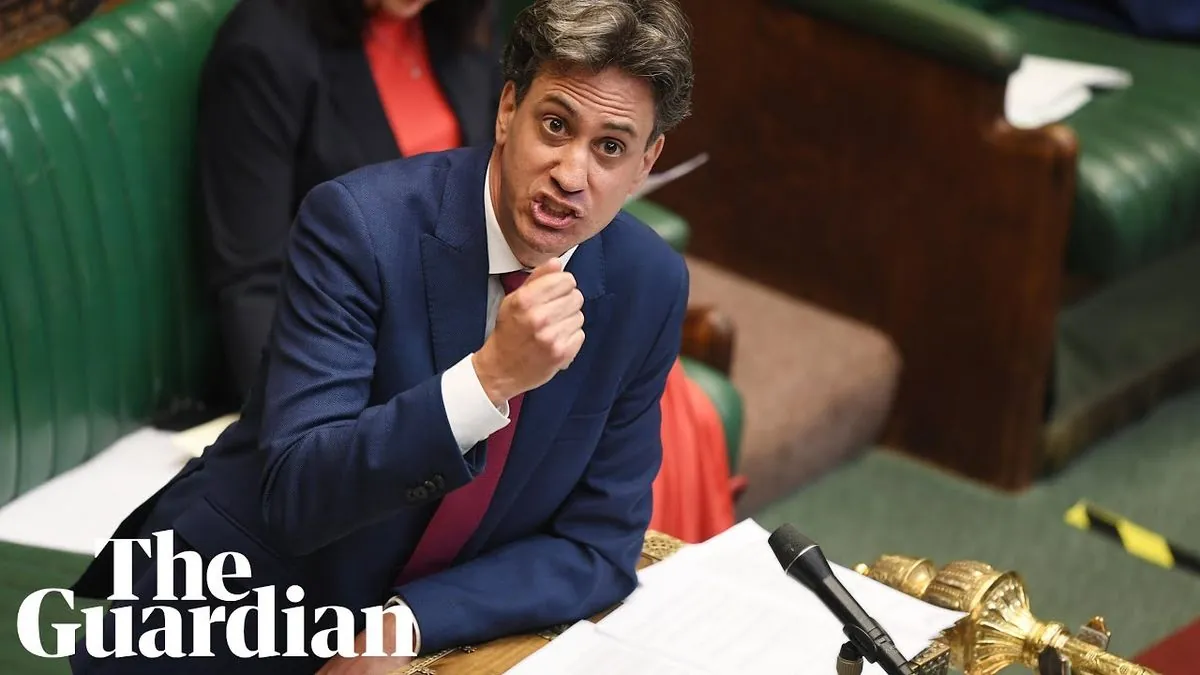Miliband's Energy Bill Presentation Sparks Criticism and Debate
Ed Miliband's introduction of the Great British Energy Bill in Parliament faced scrutiny over lack of detail and defensive responses. The proposal's substance and Labour's approach to energy policy were questioned.

Ed Miliband, former Leader of the Labour Party from 2010 to 2015, recently presented the Great British Energy Bill in the House of Commons, sparking a heated debate and drawing criticism from opposition members. The bill, named in a style reminiscent of popular television shows, aims to address the UK's energy challenges but has been met with skepticism regarding its substance and implementation.
Miliband's presentation style was notably awkward, with his delivery compared to that of an inexperienced teacher attempting to engage uninterested students. He emphasized that the City of Munich owns a larger share of UK offshore wind assets than domestic entities, a fact that highlights the complex landscape of renewable energy investments in the country.

The Labour Party's energy policy, centered around the concept of Great British Energy, has been promoted as a solution to the nation's energy concerns. However, critics argue that the proposal lacks crucial details. Claire Coutinho, the shadow energy secretary, pointed out that the bill is merely four pages long and provides little substantive information.
"This bill is four pages long. There's barely anything in it."
Coutinho also questioned Miliband's qualifications for overseeing such a significant initiative, noting his limited private sector experience. This criticism underscores the ongoing debate about the balance between political leadership and practical expertise in shaping energy policy.
The UK has set ambitious targets for renewable energy development, including the goal of achieving net-zero emissions by 2050. Offshore wind plays a crucial role in this strategy, with the country aiming to significantly increase its capacity in the coming years. However, the path to decarbonization remains challenging, as evidenced by Miliband's recent communication with the National Grid regarding the 2030 decarbonization target.
When faced with questions about the potential impact of Great British Energy on private sector investments, Miliband responded defensively. His reaction to Wera Hobhouse's inquiry was particularly heated, with accusations of ideological bias. This exchange reflects a broader trend within the Labour Party leadership, where criticism is often met with strong pushback.
The debate surrounding the Great British Energy Bill highlights the complexities of energy policy in the UK. As the country strives to transition to renewable sources and reduce carbon emissions, the balance between public initiatives and private sector involvement remains a contentious issue. The coming months will likely see further scrutiny of Labour's energy proposals as the party seeks to convince both Parliament and the public of their viability.


































